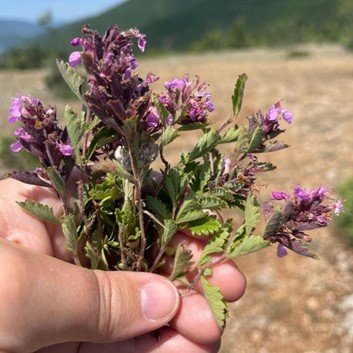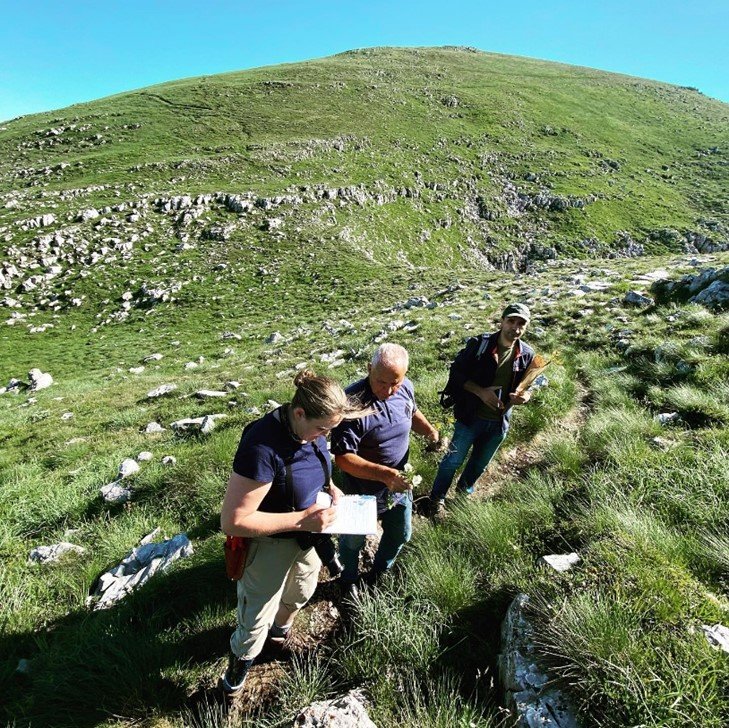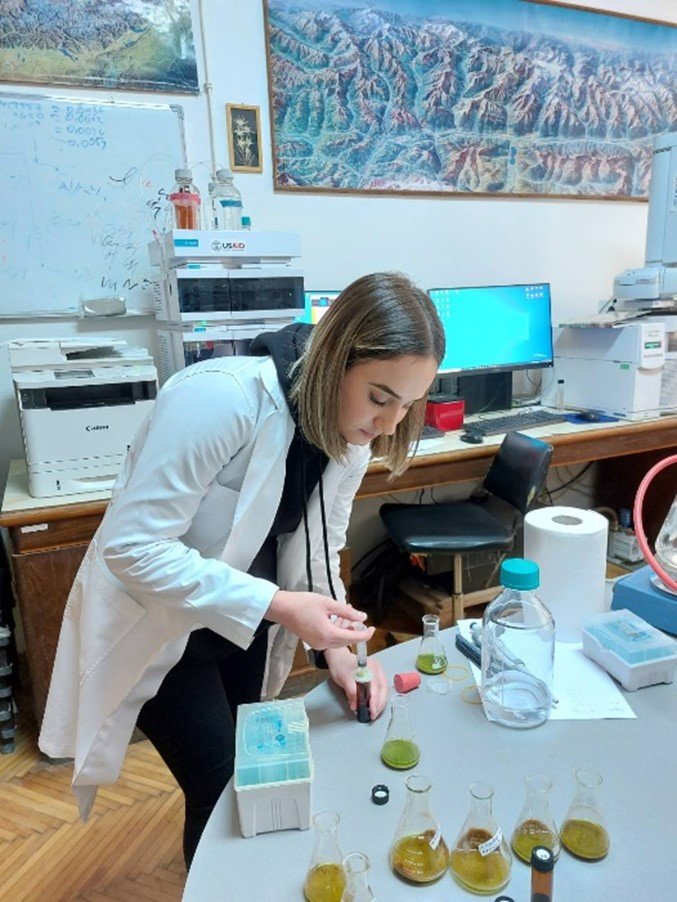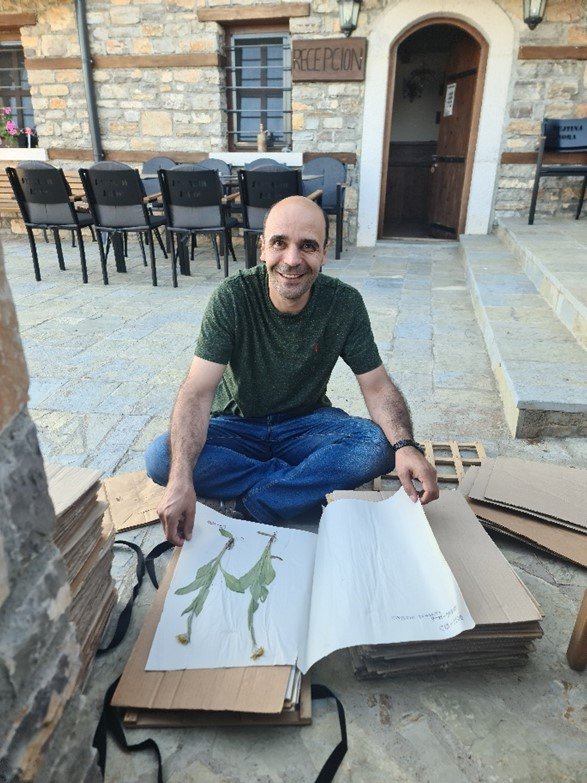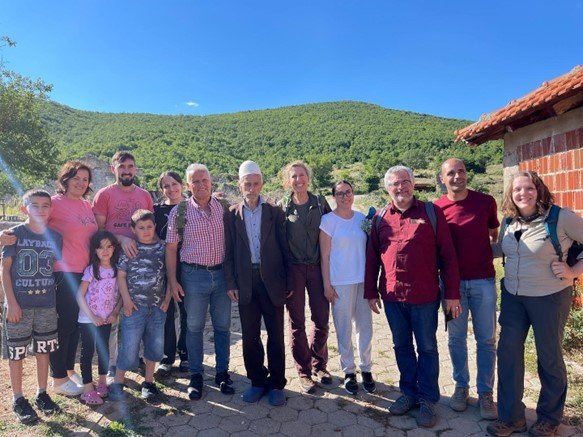Hop is an economically important plant species used in both the pharmaceutical and food industries. Hop raw material usually is provided from cultivars derived from hybridization, a process that decreases genetic variability. While the raw material from wild populations is not used by industry due to its high variability in chemical composition, wild hop germplasm and genetic diversity from under-utilized origins can serve as new reservoirs of genetic material useful for improving crop production. Wild hops have the potential to reveal unique sources of novel bioactive compounds.
This PEER project investigated the genetic and chemical potential of wild hops by applying phytochemistry and molecular biology techniques in assessing the biological activities and toxicological effects of the hop. The team assessed genetic diversity and chemical variability of wild hop specimens that can serve in the future as a new gene pool for improvement of hop cultivars, as well as a potential source of novel chemical entities for future food and drug development. The project team sought to break down barriers between fieldwork and lab work, as well as between disciplines, by integrating tools from multiple disciplines and fostering sustainable uses of natural resources.
Final Summary of Project ActivitiesThe researchers undertook an intensive literature search to identify potential hop populations in Kosovo and compiled a list of possible sites for hop collection. The PEER team’s fieldwork resulted in the collection of plant material from 21 selected populations and provided training for five graduate and doctoral students.
The PEER team also participated in a training workshop for DNA analysis and established a methodology for studying the genetic population of hop using STR markers. The graduate and doctoral student researchers undertook a variety of analyses of the hop samples, including hop DNA extraction and DNA fragment analysis; chemical analysis of the constituents of hop essential oil; analysis of volatile organic compounds (VOCs); experiments in extracting VOCs; evaluation of non-VOCs compounds among wild hop populations; antioxidant activity testing; and assessment of the cytotoxic and genotoxic properties of water-based and crude hop extracts using the Allium test model.
The PhD and Master’s students in the PEER team undertook much of this analysis as part of their thesis work, and these young researchers subsequently presented their findings in technical presentations at five conferences.
In addition to the planned activities within the scope of this project, the PEER team conducted an ethnobotany expedition in the Has region, situated along the border between Albania and Kosovo. The team successfully collected understudied medicinal plants for scientific analysis and documented traditional food and health practices to inform future laboratory research. Moreover, the team investigated the medicinal plant trade, changes in plant usage and collection, and their material culture, with a particular focus on rye used in roofing and for nutritional purposes. The results of this field visit were presented at the American Association of Geographers 2023 Annual Meeting.
In terms of outreach and collaboration, in addition to strengthening collaboration with Emory University and the University of Gastronomic Sciences, the project activities facilitated new partnerships with Florida Atlantic University. The team also conducted online consultations with the USAID office in Prishtina to identify beneficiaries focused on medicinal and aromatic plants within the Agriculture for Growth and Rural Opportunities program. The goal was to establish new cooperation and synergize USAID activities in Kosovo. To further enhance collaboration with local companies working with medicinal and aromatic plants, the team organized a meeting with NGOs to discuss the potential services the lab could provide for local companies and explored possibilities for cultivating hops. The researchers shared their new methods and results with a local brewery and met representatives of NGOs, aiming to link scientific research with economic development. In addition, to ensure the long-term impact of the project, they incorporated the field guidelines for plant collection, laboratory protocols, standard operating procedures, and methodologies for chemical, molecular, and toxicological analyses into course curricula at the University of Prishtina.
PublicationsAvni Hajdari, Kujtesa Gashi, Blerta Salihu, Sunmin Woo, Behxhet Mustafa, Albiona Spahiu, Bledar Pulaj, Cassandra L. Quave. 2023 Assessment of phytochemical composition and antioxidant activity variability in wild populations of
Humulus lupulus L. in Kosovo. Preprint available at SSRN.
http://dx.doi.org/10.2139/ssrn.4589167Sarah Shabih, Avni Hajdari, Behxhet Mustafa, and Cassandra L. Quave. 2022. Medicinal plants in the Balkans with antimicrobial properties. Chapter 3 in
Medicinal Plants as Anti-Infectives, Academic Press, pp. 103-138, ISBN 9780323909990. Editor: François Chassagne.
https://doi.org/10.1016/B978-0-323-90999-0.00013-6Blerta Salihu, Bexhet Mustafa, Bledar Pulaj, and Avni Hajdari. 2022. Chemical composition of the essential oil of hops (
Humulus lupulus L.) growing wild in Kosovo.
Macedonian Pharmaceutical Bulletin 68 (Supplement 2): 67-68.
https://doi.org/10.33320/maced.pharm.bull.2022.68.04.028 



